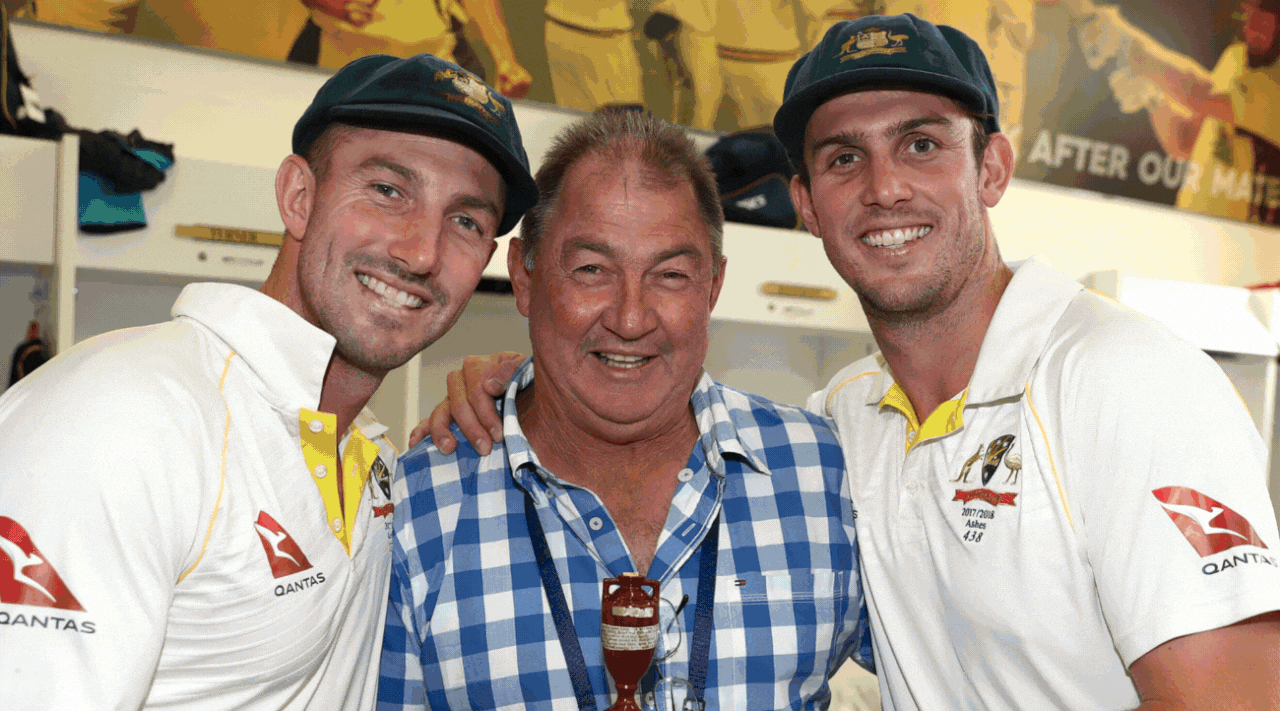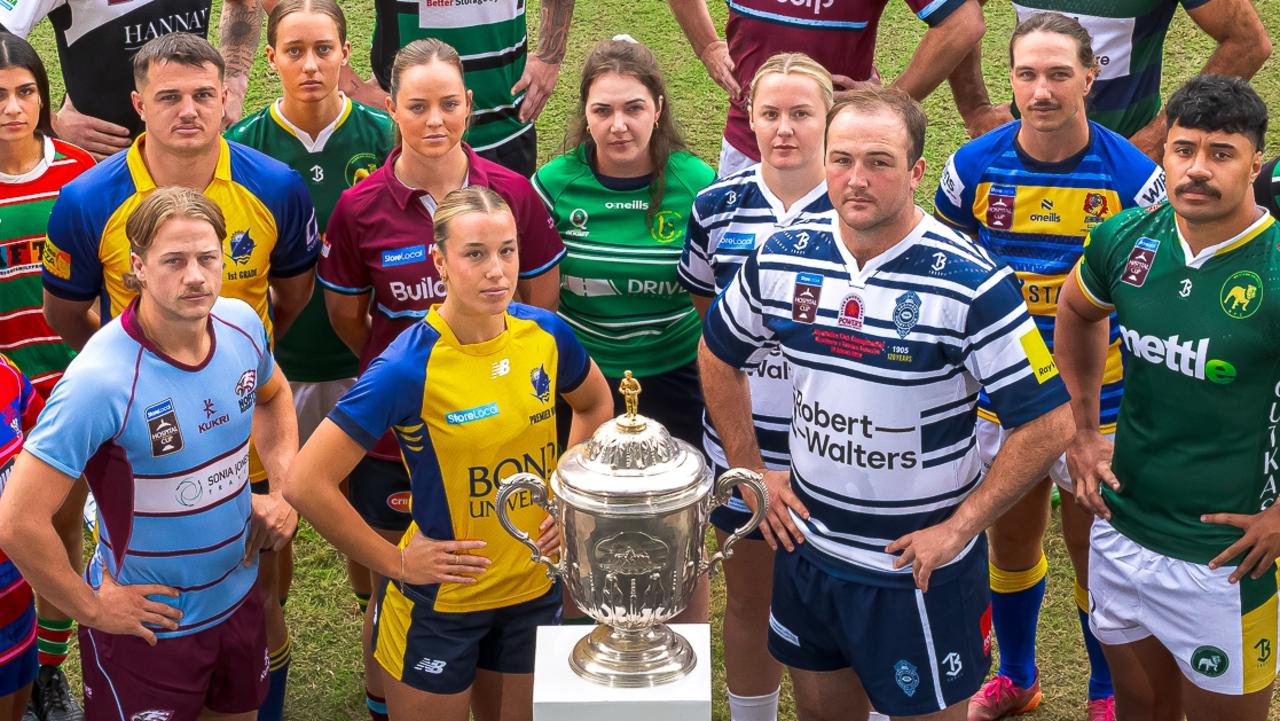SportNXT Summit: How World Cup helped bust the biggest myth about women’s sport
Last year’s Women’s World Cup didn’t just break records – it tore down several tropes associated with women’s sport. But the biggest myth that needs busting remains.
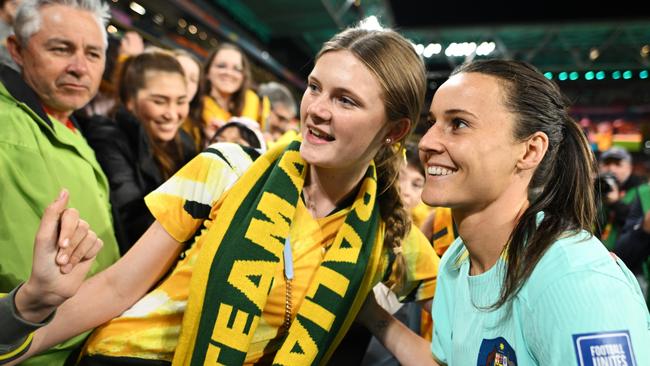
Women's sport
Don't miss out on the headlines from Women's sport. Followed categories will be added to My News.
Trailblazing executives Julie Uhrman and Kim Anderson are helping bust the myth that there is no audience for women’s sport.
Uhrman is the co-founder and president of Angel City Football Club – the US National Women’s Soccer League club whose owners include Natalie Portman and Serena Williams – and Anderson, the head of marketing for the FIFA women’s World Cup last year.
They are among an esteemed group of women’s sport executives added to the speaking roster at global sport business summit SportNXT.
While not all are involved exclusively in women’s sport, the rise in that sector of the market is undeniable, and the World Cup is a prime example.
The tournament broke records in several categories, from worldwide broadcast numbers to fans attending games and community engagement.
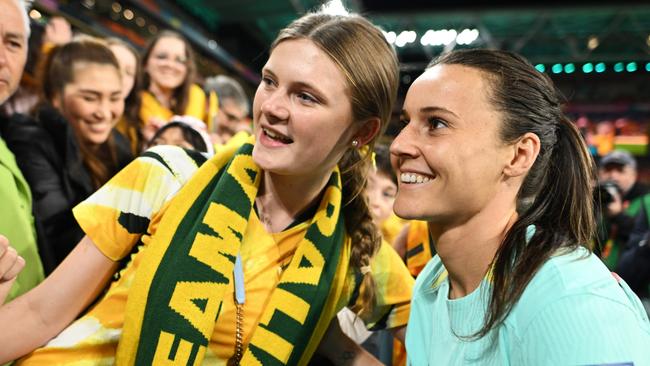
Anderson said it also busted several tropes associated with women’s sport.
“I think the World Cup was a pivotal moment in many ways and it debunked several myths about women’s sport,” Anderson said.
“One of those was that societal change with men embracing the tournament in droves and, indeed, calling it just ‘football’ without a gender tag required.
“Women’s sport is, I think, a great platform for changing those perspectives and the status quo in our communities.”
Uhrman, who was in Australia and New Zealand for a month last year during the World Cup and witnessed first hand the fervour around the Matildas, said there still remained an unreasonable focus on women’s sport being an immediate commercial success for it to be given any gravitas.
“I think there’s a very unfair lens on women’s sports that we have to make money right away or we have to be successful right away,” Uhrman said.
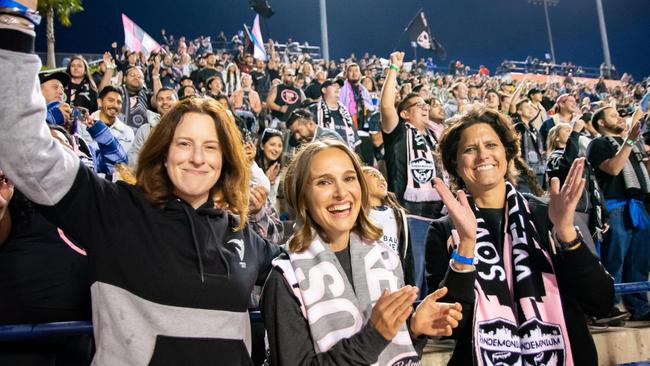
“There are definitely different standards for women’s sports and I think that stems from the false belief that people don’t watch women’s sports.
“Therefore, if you’re going to build a women’s club and invest in a women’s club, we want to see you be successful immediately to prove the narrative wrong.
“Well, the narrative is wrong.
“You see it in the US, with Angel City Football Club selling out a stadium, you see it with the incredible crowds with NCAA women’s basketball, even the WNBA finals – if you look at the viewership numbers, way over a million viewers – so the narrative is wrong.
“I think we need to change the perception of what success looks like.”
By any measure, the World Cup was a success and Anderson said it showed women’s sport was “undoubtedly” prime-time material now.
“We witnessed a record two billion people viewing and engaging with the tournament, which makes it one of the top few sports events in the world,” Anderson said.
“But we weren’t the only ones in broadcast and spectator records last year.”

The netball World Cup, won by Australia in South Africa last year, may have flown under the radar a little due to it being held in a different time zone during the football World Cup but the tournament overall was the most watched in history.
Then there was the women’s T20 cricket World Cup, also held in South Africa early last year and won by Australia, which was the most watched International Cricket Council women’s event in history.
“Visibility of the product is key,” Anderson said. “We’ve shown that these athletes are exceptional and they’re truly entertaining.
“We just need to make sure we’re giving the fans a quality stadium experience and a really accessible media offering for that to naturally continue.”
Uhrman, Anderson, former Rugby Australia boss Raelene Castle, Tennis Australia chief event operations officer Alex Hamilton and Cricket Australia general manager broadcasting and commercial Stephanie Beltrame were announced on Wednesday as speakers at the conference in Melbourne next month.
SportNXT Chair Eddie McGuire said insights from the six would be invaluable.
“The inclusion of these extraordinary women is a testament to their undeniable influence on the sports industry,” Maguire said.
More Coverage
Originally published as SportNXT Summit: How World Cup helped bust the biggest myth about women’s sport



